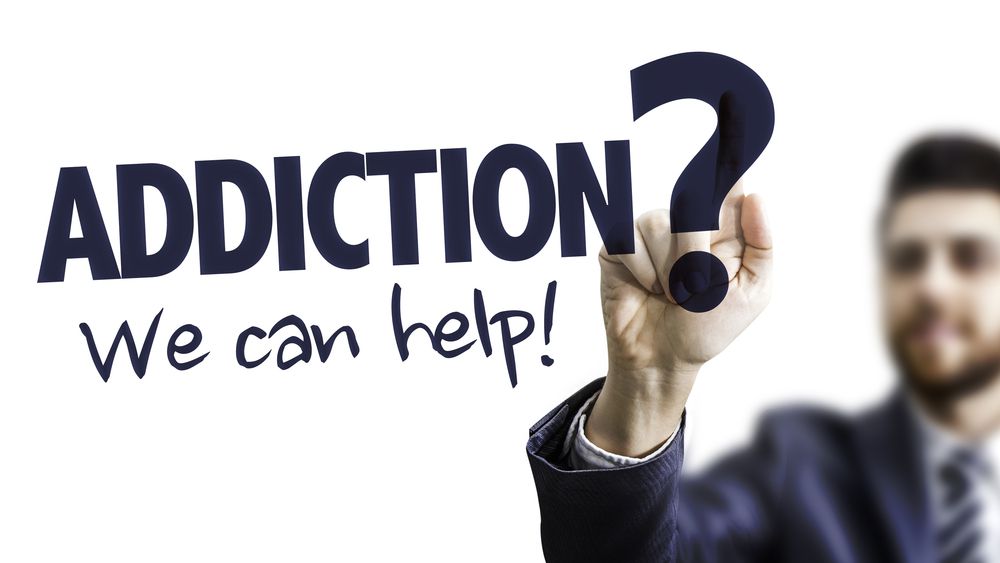
Addiction Treatment: Does Counselling Really Help?
Getting counselling as part of addiction treatment plays a vital role in overall addiction treatment and recovery. You see, counselling sessions can help you understand the root causes of your addiction.
Through counselling, you can learn the different techniques to recognize addiction relapse symptoms and avoid them. Typically, common counselling methods include dialectical behavioural therapy, motivational interviewing therapy, cognitive behavioural therapy and more.
Generally, most of the causes of addiction are often environmental and genetic. However, life experiences such as stress, trauma, and occasionally, early exposure to substance abuse can also affect an individual’s vulnerability to addiction.
In most cases, addiction causes mental and physical side effects. These mental and physical side effects include anxiety, depression, increase in stress level, withdrawal signs, cravings, etc. Counselling for addiction treatment doesn’t focus on these side effects. Instead, it focuses on the environmental and genetic causes of addiction.
In this article, we’ve put together a comprehensive discourse on the concept of counselling for addiction treatment. Over the course of this blog, we will describe the basic procedure for addiction counselling. More importantly, we will answer the biggest question of them all — does counselling really help with addiction treatment?
What is Addiction Counselling?
Addiction counselling consists of several forms. Typically, the most prevalent type is individual counselling. However, as a recovering individual, you may have to participate in group or family counselling sessions.
Group counselling sessions will enable you to enjoy the privilege of sharing your challenges with others. Also, it provides you with the opportunity to share recovery tips, symptoms of relapse, and more with experts.
In general, addiction counselling is a form of counselling that is specially designed. This is because of its outlook on addiction as a serious disease rather than another sign of an underlying issue. Furthermore, it doesn’t dismiss the fact that those underlying problems may have influenced your behaviour towards substance abuse.
During drug addiction counselling sessions, the challenges and issues that led to the addiction will be assessed. Once the counsellor or therapist completes a thorough evaluation of your situation, they will design a particular treatment plan for you to follow. This treatment will help you overcome all challenges regarding the addiction. Thus, allowing you to attain sobriety and final recovery goals.
Ultimately, the addiction counselling process is facilitative. This means that it allows you to overcome the issues causing anxiety and stress. This makes it easy to address the situation and deal with them in a healthier way.
Also, addiction counselling treatment will examine the motives behind the addiction. This will then help you understand and become more aware of your actions. This is one of the most significant roles of counselling in addiction recovery.
How Counselling for Addiction Treatment Works
Rather than just a physical dependency, addiction is a mental issue. Naturally, detox will help free you from physical dependence. However, the cognitive problems causing addiction will not be resolved with detox. This is where counselling for addiction treatment becomes useful to create long term sobriety.
Counselling treats the problems that initially led to psychological addiction. Generally, the mental part of addiction requires a longer timeframe and can be challenging to treat. At 1000 Islands Addiction Rehab centre, we provide counselling for addiction treatment in our rehab facilities, and it often extends into the future even after being discharged.
The Role of Counselling in Addiction Recovery
Addiction counsellors provide a crucial support scheme for individuals recovering from different types of addiction. In most cases, the counsellor’s approach is to build a stable relationship with their patients — one that is based on trust. Also, counsellors provide non-judgemental guidance, resources, and a support system that can help boost your addiction recovery.
Typically, there are several aspects to counselling. For instance, it’s essential that you engage a professional counsellor. It’s also crucial that the procedure is about helping you discover ways to deal with your addiction issues. Telling you what to do or giving advice is not addiction counselling.
To help you understand the role of counselling in addiction treatment, we’ll break the process down. Addiction counselling in Canada,
- Is the process that occurs when a counsellor and a patient set aside a specific time to explore the factors causing addiction. Typically, most of these factors may include your emotional as well as stress-related feelings.
- Is the act of aiding or assisting you in seeing things from a clearer perspective or a different outlook. This will enable you to focus on experiences, feelings, and behaviour designed to promote a positive influence.
- Is a relationship of trust. In counselling, confidentiality is highly significant. Professional counsellors will often explain how their policy works on confidentiality. However, they may be mandated under the law to disclose your data if there is a life at risk.
Related article: Traveling for Addiction Treatment Improves Long-Term Recovery
Types of Addiction Counseling
In general, addiction counselling consists of several types and classes. Currently, no one can scientifically prove that one method of counselling works better than the other. However, it’s an indisputable fact that addiction counselling is effective in addiction recovery.
Notably, there is no one technique that is ideal for everyone suffering from addiction. In fact, the proper counselling approach for addiction treatment options is dependent on your individual needs.
While none of the different forms of addiction counselling is better than the other, a group therapy session is often preferable over an individual therapy session. Every patient gets to enjoy a free-flow of support during group therapy sessions. Most importantly, there are always motivational challenges from other patients going through the same recovery process. This will help you remain accountable and also reduce the possibility of relapse in the future.
The good news — most rehab centers today often include addiction counselling as a comprehensive part of their treatment. Furthermore, you can consult an addiction treatment service near you to learn more about the different types of counselling for addiction treatment.
Generally, the common factor to all types of addiction counselling is that they all view addiction as a problem with varying phases. The treatment during addiction counselling sessions often aims at the patient in recovery and not the substance.
Below, you’ll discover different types of addiction counselling.
Behavioural Therapy
With behavioural addiction therapy, the aim is to help you attain goals for your present life. This type of counselling for addiction treatment evaluates your unhealthy and undesirable behaviours. It also identifies the factors supporting such behaviours.
Addiction is a recurring behaviour. This happens because the substance produces feelings of euphoria, desire, relief, and supposedly, helps you feel calm. Therefore, even if you’re already going through negative consequences as a result of the substance, you’ll only see the benefits and how high it makes you feel. As such, you’ll keep maintaining the behaviour, and over time the adverse effects will begin to manifest.
In behavioural therapy, a therapist or counsellor will use specific interventions to address these negative behaviours. At our facility, we will use behavioural counselling techniques to engage you in different intervention techniques. The end result is to help you build your mindset and regain total control.
Group Therapy
Group therapy offers room for communication from other patients. It’s a platform to share similar pieces of advice and experiences with other addiction treatment patients. This can help you develop adequate coping mechanisms and problem-solving skills to easily fight addiction.
Individual Therapy
Individual treatment is a one-on-one conversation between you and a therapist. Firstly, you will have to build trust with your therapist. When you attain a trust level with your therapist, you’ll be able to communicate and discuss the issues that are causing your addiction.
It often progresses more swiftly than other treatments. This is because the therapist only has to focus on understanding one patient at a time. Generally, both group therapy and individual therapy can go hand-in-hand for faster recovery. Both are capable of enhancing addiction treatment and improving your interpersonal relationships.
Humanistic Therapy
This form of counselling is also known as Person-Centered Therapy. This kind of counselling assumes every human possesses the capacity to resolve their problems. This belief further extends that everyone will succeed if provided with proper understanding, acceptance, and support.
Motivational Interviewing
Motivational interviewing falls under the category of humanistic therapy. However, it’s more structured and particular for treating drug addiction. This type of counselling helps you make healthier decisions rather than being manipulated to do things with shame or guilt.
Cognitive Behavioural Therapy
This kind of counselling targets your behaviours, feelings, and thoughts. Its view is that the negative style of human thinking often leads to adverse behaviours and negative feelings. As such, these develop into negative thinking that may cloud your mind. The interconnections of thoughts, behaviour, and feelings are the origin of cognitive behavioural therapy.
During a CBT session, a therapist will act as your coach as well as your teammate. They will help you understand and assess the factors causing the unusual thoughts, behaviours, and feelings you want to address.
In Cognitive Behavioural Therapy, the therapist will look for cognitive distortions feeding your thoughts and behaviours. An example of these distortions is ways of thinking that are faulty. In most cases, these behaviours may seem logical to such individuals, whereas they are irrational and illogical in reality. As part of addiction treatment counselling, your therapist will help you unravel these dangerous thought processes.
Contingency Management
This kind of counselling falls under the category of behavioural therapy. Furthermore, it is a therapeutic management pattern based on regular monitoring of a particular trait or behaviour. It also includes the removal (or provision) of concrete, positive rewards when the trait occurs — or does not.
Counselling for Addiction Treatment: Does it Help?
Once the issues that led you into substance addiction are identified, there is a higher chance of a successful recovery. Some factors that may lead to substance abuse can be bad influences, emotional traumas, life stressors, etc.
With the help of a professional addiction therapist, the root events or causes can be dealt with. Also, you will be guided thoroughly on becoming more aware and in control of your decisions. Below are some of the benefits of counselling for addiction treatment:
Develop Stress Coping Mechanisms
One of the top benefits of counselling is that it helps you develop healthy coping mechanisms. Typically, counselling can help you change the way you respond to life stressors. Through these counselling sessions, you’ll be able to identify unusual and self-destructive responses to these stressors.
Firstly, you need to learn new and healthier ways of coping with stress. After that, your behaviour toward substance use will change for the better. This will greatly help you manage cravings and triggers.
It Treats Attachment Disorders
Generally, humans tend to form lifelong trust and security within the first four to five years of existence. Whenever we face deficits in such relationships, such as being abused or neglected, we start adopting different coping mechanisms. This happens mostly because we want to regain that level or feeling of security again.
During adulthood, most individuals with attachment disorders often turn to drugs or alcohol. With proper counselling, a therapist will analyze your childhood insecurities and help you understand the behaviour correctly. This will allow you to confront the issue and realize its overall impact on your behaviour and substance use.
It Improves Family Relationships
Addiction counselling isn’t just for the individual recovering from addiction. It’s also useful for their immediate families and loved ones. Family counselling is a powerful technique in ensuring that addiction recovery isn’t just successful but effective. Generally, when the family is defective, it may influence patient recovery negatively.
However, when your loved ones attend family counselling sessions, they will have a better understanding of helping someone going through addiction. This way, they will learn better ways to communicate with you and express their thoughts on crucial issues. With better open communication, the family will heal, and members of the family will enjoy a healthy trust.
Provides a Safe Environment
Addiction counselling, such as group therapy, is crucial in the recovery process. During addiction counselling sessions, patients will get to share their frustrations, fears, and experiences with one another. Typically, the setting is safe, maintained, guided, and controlled by the counsellor.
Participants can also help each other during discussions while learning from one another. For instance, patient A can learn holistic tips on how to avoid using dangerous substances and maintain sobriety. Furthermore, group therapies are suitable for addiction patients because it encourages companionship and connection.
Treating Dual Diagnosis
In most cases, an individual with a drug or alcohol addiction may also experience random mental health issues. This may appear as anxiety, depression, bipolar disorder, among others. If not adequately addressed, it may prolong the recovery period and also make it more difficult.
Also, counselling can assist patients who have mental health issues and addiction problems. This is because such patients will enjoy effective therapy sessions for different destructive behaviours and meds for mental issues.
FAQs About Counselling for Addiction Treatment
Below are answers to some frequently asked questions:
Does counselling work for addiction treatment?
Yes. Counselling for addiction treatment is one of the best ways to treat substance abuse altogether. It helps drive effective changes in the lives of the addicts to ensure there is little possibility of a relapse in the future.
Why Do I Need Addiction Counseling?
Thinking you don’t need to go through addiction counselling during recovery may be tempting. However, addiction is a life-long journey that requires consistency, effort, time, and hard work to pull through.
In actuality, only a few individuals enjoy the process of uncovering and discussing long-held trauma and pain. It’s hard work. However, you are likely to suffer a relapse if you refuse to do the necessary work to isolate the underlying issue.
When Is It Appropriate to Seek Addiction Counselling?
The main objective of counselling is to help you explore your difficulties in a safe environment. This helps you resolve the issues underpinning your addiction to substances and helps you attain sobriety. So, it’s best to seek counselling as a part of your addiction recovery plan.
Is there a Need for Counselling During Addiction Treatment?
Yes, there is a need for counselling during addiction treatment. In fact, most rehab centers today are now incorporating addiction counselling into their treatment program to ensure optimum results. Addiction counselling provides a significant support system for people recovering from drug abuse.
Conclusion
So, does counselling really help during addiction treatment? Yes! It’s an incredibly effective and useful treatment technique for drug and alcohol addictions. Counselling for addiction treatment does not only help with attaining sobriety but also eliminates the root cause of addiction.
Finally, counselling for addiction treatment is a beneficial method for recovering from addiction. You can incorporate the therapy into your recovery program during the early stages of your treatment. This will help you on your way to sobriety and avoiding relapse in the long run.
Notably, there are several advantages of counselling if you follow the procedure adequately. There, you can learn several things about yourself and how to deal with your drug use problems.
Now that you’ve learned about the several types of addiction counselling, you can discuss with an expert on what’s best for you.
Contact 1000 Islands Addiction Rehab & Treatment Centre for addiction treatment programs.
Related article: Helpful Addiction Treatment Tips for the Pandemic




